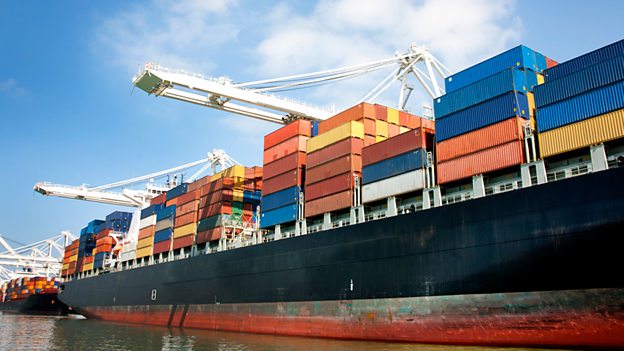
Deep Sea and Foreign Going: Inside Shipping, the Invisible Industry
Journalist Rose George shines a light on the huge yet invisible global shipping industry. Abridged by Laurence Wareing. Read by Susie Riddell
Available now
There are currently no available episodes
Supporting Content
Rose George writes:
I can't sail. I swim, but I'm scared of the ocean. I don't even like to eat fish. In short, I'm an islander who is not maritime. Yet in 2010, I decided to run away to sea. I had professional and private reasons for this. The personal one was to do with illness: my own, but also my stepfather’s. He had Alzheimer’s which, after several horrible years, had become so severe he needed to be sectioned.Ìý With my mother and him both safe, I could depart, and though there are many places on land that I could have run to, I knew that the wildest, most foreign place on earth was its waters. Besides, I was writing a book about the shipping industry, and where better to start than with five weeks on a deep sea and foreign-going 80,000 tonne container ship?Ìý
Ìý
I did some research and discovered that Maersk - a company whose name I had probably seen and ignored on countless containers on countless trucks on countless motorway journeys - was the largest container shipping company in the world. I asked them if I could go on one of their ships. When they didn't immediately agree, I kept asking (this was the same technique I used with Thames Water to get into London's sewers). Eventually they granted my passage, even though by 2010 piracy was a serious danger for ships and seafarers going through the Indian Ocean and crew were no longer allowed family members on board. I was allowed a passage as a supernumerary, a non-working member of the ship's crew, and arrived at Felixstowe one Friday in June, nervous and excited at the prospect of travelling 9288 nautical miles to Singapore, over 39 days, via six ports, five seas and two oceans.Ìý
Ìý
I’ve had plenty of odd and beguiling assignments on-land. I have been to Saddam Hussein's birthday party, reported on alternative World Cup finals between Bhutan and Montserrat played on a Himalayan football pitch, and travelled through slums and sewers in great cities. But when I disembarked in Singapore, I knew that I'd been on a trip I would never forget, and I wanted to turn around and head straight back up the gangway to do it again.
Ìý






